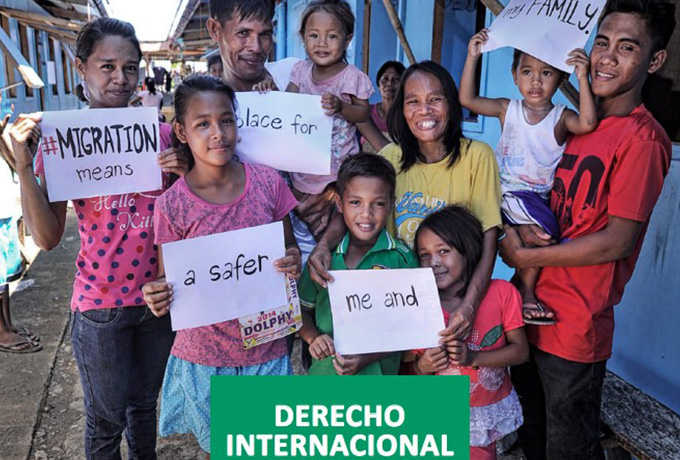Migration governance:
The combined frameworks of legal norms, laws and regulations, policies and traditions as well as organizational structures (sub-national, national, regional and international) and the relevant processes that shape and regulate States’ approaches with regard to migration in all its forms, addressing rights and responsibilities and promoting international cooperation.
Migration:
The movement of persons away from their place of usual residence, either across an international border or within a State.
Migrant worker:
A person who is to be engaged, is engaged or has been engaged in a remunerated activity in a State of which he or she is not a national.
Migrants in vulnerable situations:
Migrants who due to the circumstances are unable to effectively enjoy their human rights, are at increased risk of violations and abuse and who, accordingly, are entitled to call on a duty bearer’s heightened duty of care.
Migrant:
An umbrella term, not defined under international law, reflecting the common lay understanding of a person who moves away from his or her place of usual residence, whether within a country or across an international border, temporarily or permanently, and for a variety of reasons. The term includes several well-defined legal categories of people, such as migrant workers; persons whose particular types of movements are legally defined, such as smuggled migrants; as well as those whose status or means of movement are not specifically defined under international law, such as international students.
Labour migration:
Movement of persons from one State to another, or within their own country of residence, for the purpose of employment.
Naturalization:
Any mode of acquisition after birth of a nationality not previously held by the person that requires an application by this person or his or her legal agent, as well as an act of granting nationality by a public authority.
Right to return:
An element of the right to freedom of movement entailing that everyone shall be free to return to one’s own country
Return migration:
In the context of international migration, the movement of persons returning to their country of origin after having moved away from their place of habitual residence and crossed an international border.
Return:
In a general sense, the act or process of going back or being taken back to the point of departure. This could be within the territorial boundaries of a country, as in the case of returning internally displaced persons and demobilized combatants; or between a country of destination or transit and a country of origin, as in the case of migrant workers, refugees or asylum seekers.



